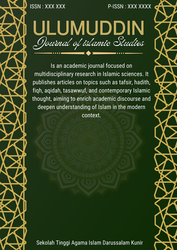 |
|---|
| People |
| Editorial Team |
| Reviewers |
| Contact |
| Policies |
|---|
| Journal History |
| Focus and Scope |
| Peer Review Process |
| Publication Frequency |
| Open Access Policy |
| Digital Preservation |
| Deposit Policy |
| Publication Ethics |
| Screening for Plagiarism |
| Withdrawal of Manuscript |
| Correction and Retraction |
| Indexing and Abstracting |
| Article Processing Charge |
| Submissions |
|---|
| Author Guidelines |
| Reviewer Guidelines |
| Copyright Notice |
| Privacy Statement |
| Manuscript Template |
| Information |
|---|
| For Readers |
| For Authors |
| For Reviewers |
| For Librarians |
| Tools |
|---|
|
|
| Visitors |
|---|
|
|
| Time |
|---|
|
|





